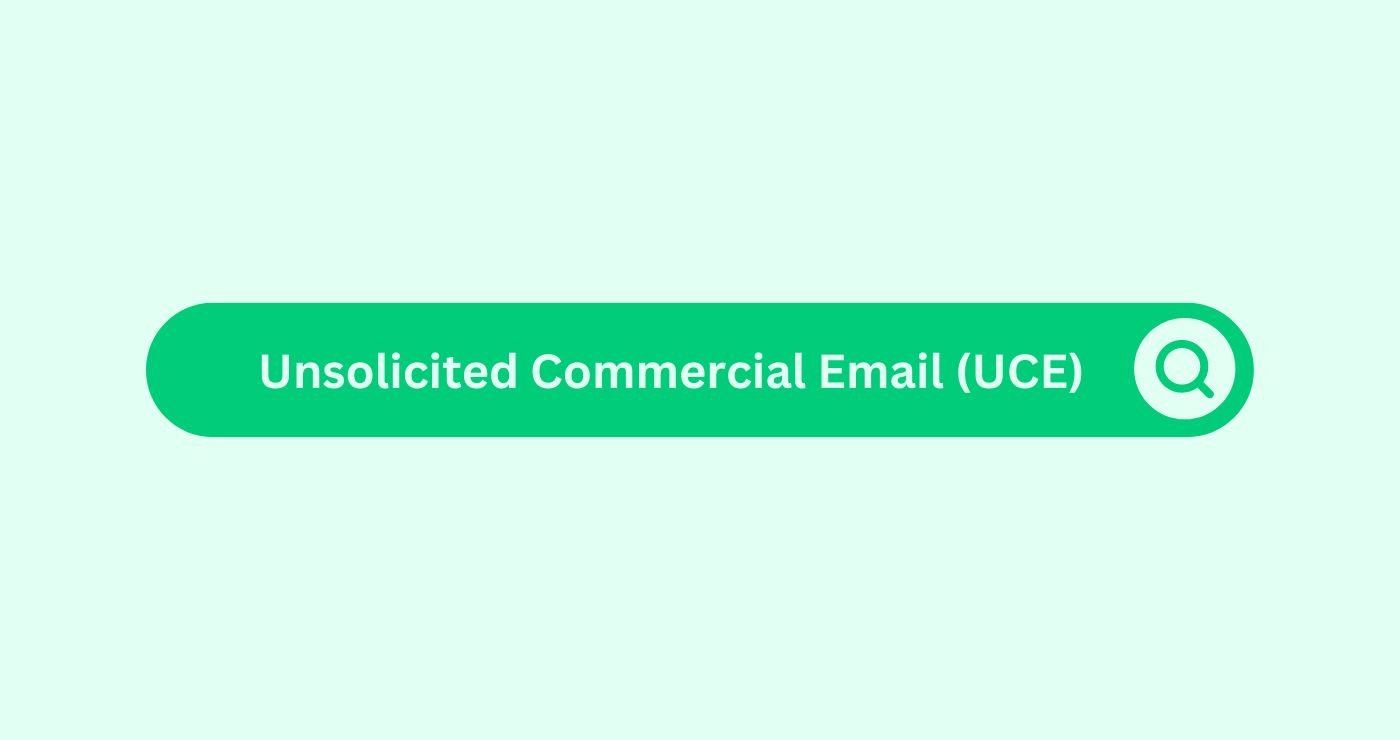Definition
Unsolicited commercial email (UCE), commonly known as spam, refers to commercial emails sent without consent. This can harm a brand’s reputation, result in penalties, and affect deliverability. Sending promotional content to recipients without their permission is unethical and often illegal under anti-spam laws.
For businesses in Auckland, utilising the expertise of a performance marketing agency can help ensure compliance with email marketingDefinition
E-mail marketing uses targeted messages t... best practices and avoid the pitfalls of UCE. By focusing on targeted and permission-based marketing strategies, businesses can enhance their email marketingDefinition
E-mail marketing uses targeted messages t... efforts while maintaining a positive brand image.
How you can use
Let’s consider a scenario where a digital marketing Auckland company mistakenly includes email addresses purchased from a third-party vendor into their marketing list. Without the recipients’ consent, the company sends out promotional emailsDefinition Promotional emails are a cornerstone of email mar... about their new SEO services. This constitutes UCE because the recipients did not opt-in to receive these emails. As a result, many recipients may mark the emails as spam, leading to potential blacklisting of the company’s email domain, reduced deliverability rates, and damage to the company’s reputation.
To avoid such issues, businesses should focus on building their email lists organically through opt-in forms on their websites and ensuring that all recipients have explicitly consented to receive marketing emails. Utilising the services of Auckland SEO experts or a performance marketing agency can help implement best practices in email marketingDefinition
E-mail marketing uses targeted messages t... and avoid the negative consequences of UCE.
Formulas or Calculations
Calculating the impact of UCE on email marketingDefinition
E-mail marketing uses targeted messages t... metricsWhat are Metrics in the context of SEO? Metrics in SEO refer... can be useful.
- Spam Complaint Rate: Measures the percentage of emails marked as spam by recipients.
Spam Complaint Rate = (Spam Complaints / Emails Delivered) × 100
Spam Complaint Rate = (Emails Delivered / Spam Complaints) × 100 - Deliverability Rate: Measures the percentage of emails successfully delivered to the recipients’ inboxes.
Deliverability Rate = (Emails− Bounces − Spam Complaints / Emails Sent) × 100
Deliverability Rate = (Emails Sent / (Emails Delivered−Bounces−Spam Complaints))×100
Key Takeaways
- Legal Compliance: Ensure all email marketingDefinition
E-mail marketing uses targeted messages t... practices comply with anti-spam laws to avoid legal penalties. - Reputation Management: Avoid UCE to protect your brand’s reputation and maintain customer trust.
- List BuildingDefinition Email marketing's list building involves strategi...: Focus on organic list-building strategies through opt-in forms to ensure all recipients have given consent.
- Deliverability: Avoid practices that leadDefinition A Lead in the context of SEO refers to a potentia... to UCE to maintain high deliverability rates and ensure your emails reach the intended recipients.
- Professional Guidance: Utilise the expertise of digital marketing agencies or Auckland SEO experts to implement best practices in email marketingDefinition
E-mail marketing uses targeted messages t... and avoid UCE.
FAQs
What is Unsolicited Commercial Email (UCE)?
UCE refers to emails sent for commercial purposes without the recipient's consent, often considered as spam.
Why is UCE a problem in email marketing?
UCE can damage a brand's reputation, leadDefinition A Lead in the context of SEO refers to a potentia... to legal penalties, and negatively impact email deliverabilityDefinition Email deliverability refers to the ability of an ... rates.
How can businesses avoid sending UCE?
Businesses can avoid UCE by focusing on permission-based marketing strategies and ensuring all recipients have opted in to receive emails.
What are the consequences of sending UCE?
Consequences include potential blacklisting, reduced deliverability rates, legal penalties, and damage to the brand's reputation.
What is the spam complaint rate?
The spam complaint rate measures the percentage of emails marked as spam by recipients.
How can a digital marketing agency help with UCE?
A digital marketing agency can help implement best practices in email marketingDefinition
E-mail marketing uses targeted messages t... to avoid UCE and ensure compliance with anti-spam laws.
What is the deliverability rate?
The deliverability rate measures the percentage of emails successfully delivered to recipients' inboxes.
How can UCE affect deliverability rates?
UCE can leadDefinition A Lead in the context of SEO refers to a potentia... to higher spam complaints and potential blacklisting, which negatively impacts deliverability rates.
What are the legal implications of UCE?
Sending UCE can result in legal penalties for violating anti-spam laws and regulations.
How can Auckland SEO experts help with email marketing?
Auckland SEO experts can provide guidance on building organic email lists and implementing effective email marketingDefinition
E-mail marketing uses targeted messages t... strategies to avoid UCE.




